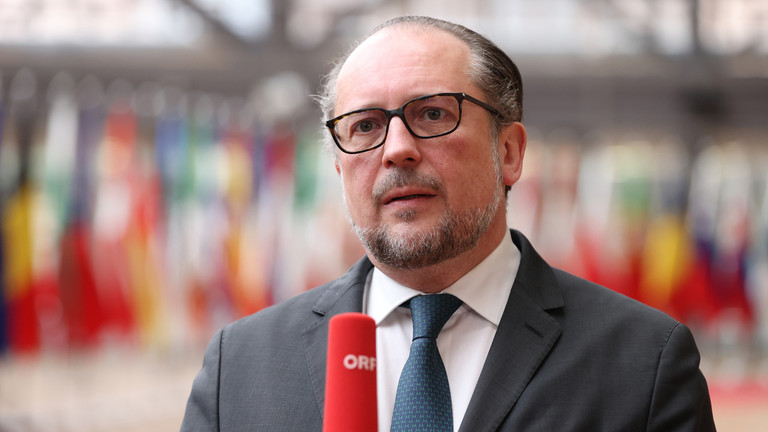Austrian Foreign Minister emphasizes the need for an airtight legal justification to appropriating Russian funds
Austrian FM Alexander Schallenberg has cautioned that if the European Union (EU) decides to seize frozen Russian assets and transfer them to Ukraine, it must ensure a clear legal foundation. Failure to do so, he argued, would severely tarnish the reputation of the bloc. In an interview with Austrian broadcaster ORF, Schallenberg emphasized the need for the confiscation to be legally sound, highlighting the importance of adhering to the rule of law in international relations. He warned that any such action could face legal challenges at the European Court of Justice. Schallenberg concluded that if the appropriation lacks a legal basis, it would be a major setback and a disgrace for the EU.
Schallenberg also expressed his belief that Russia, due to its geographic location, will remain a part of European history and stated that attempts to “cancel” the country would be misguided. He advocated for maintaining open communication channels and cautioned against allowing emotions to guide EU policies towards Russia.
According to Bloomberg, EU leaders have contemplated imposing a windfall tax on profits generated from over €200 billion ($217 billion) worth of frozen Russian central bank assets to aid Ukraine’s reconstruction. However, concerns have been raised regarding the legality of this option. The European Central Bank has also warned against a windfall levy, citing potential negative impacts on the euro as a global currency and financial stability.
In April, the European Commission ruled that member states could not outright seize frozen Russian assets. Following Russia’s military campaign against Ukraine in February 2022, the EU and its allies froze substantial amounts of Russian central bank holdings and private assets. Russian officials have consistently denounced any seizure of their country’s assets as theft and a violation of international law.
An analysis of the news
The news article highlights the stance of Austrian Foreign Minister Alexander Schallenberg regarding the potential confiscation of Russian assets by the European Union (EU) and the importance of establishing a solid legal basis for such action. Schallenberg argues that failure to ensure a watertight legal case would significantly damage the reputation of the EU. He emphasizes the need for countries with a rule of law, like Austria and other EU members, to make decisions based on legal principles in international relations.
The article also mentions Schallenberg’s view that attempting to isolate or cancel Russia would be inappropriate, considering its geographical position and historical ties to Europe. He advocates for maintaining open communication channels and urges the EU to avoid letting emotions dictate its policies toward Russia.
The discussion on imposing a windfall tax on frozen Russian assets to support Ukraine’s reconstruction is highlighted. While this option was considered the least problematic by EU leaders, concerns were raised about its legality. The European Central Bank has cautioned against such a levy, expressing concerns about its potential impact on the stability of the euro as a global currency.
The article notes that in April, the European Commission ruled that member states could not seize frozen Russian assets outright. These assets were frozen following Russia’s military campaign against Ukraine in February 2022. Russian officials have consistently condemned any seizure of their country’s assets, asserting that it would be illegal under international law.
Overall, the news article provides an analysis of the positions and arguments put forth by Alexander Schallenberg regarding the potential confiscation of Russian assets by the EU. It highlights the importance of a robust legal foundation, the risks of reputational damage, and the need for measured and diplomatic approaches in EU-Russian relations.
SOURCE: RT


